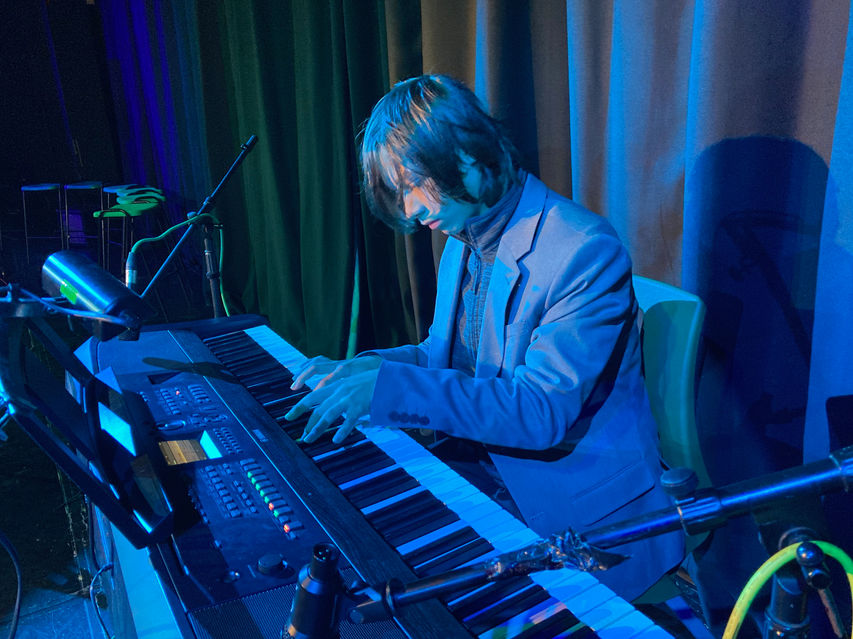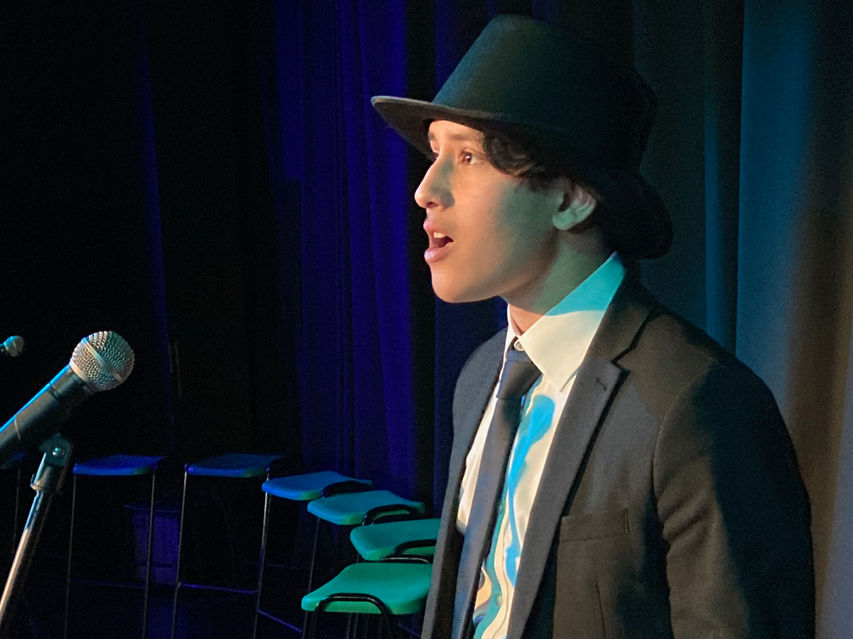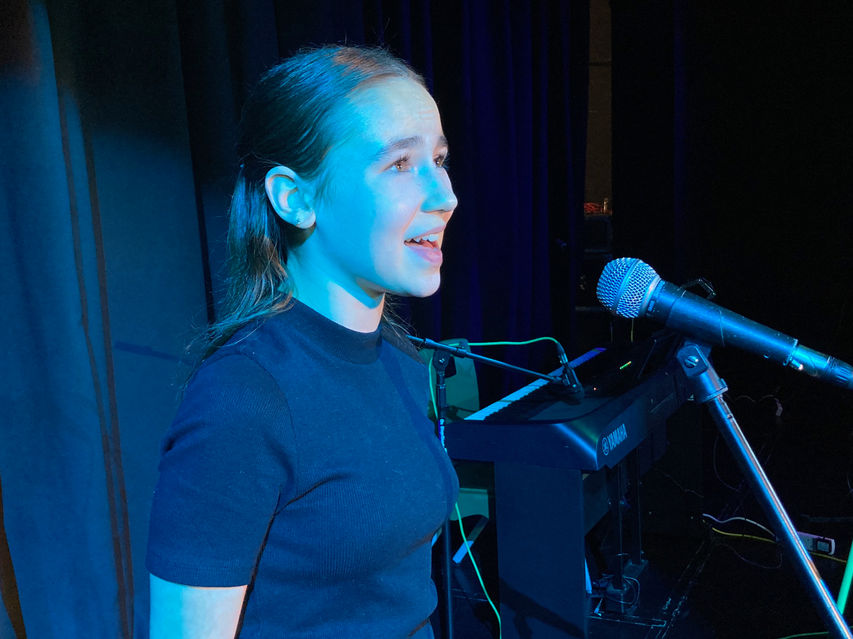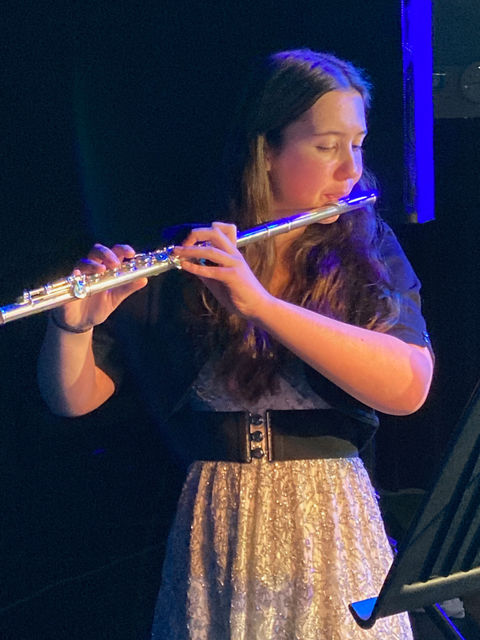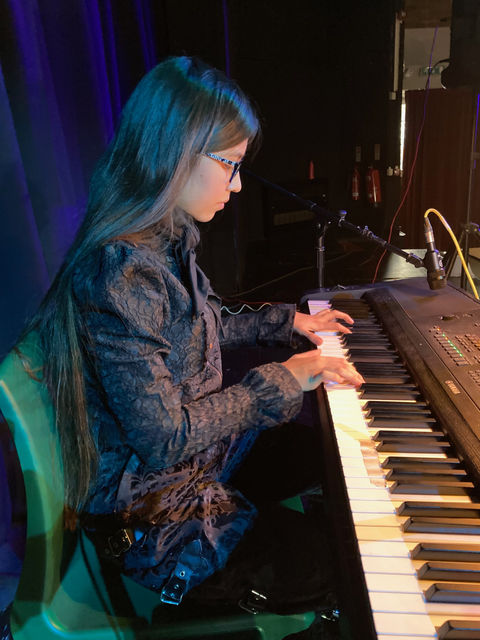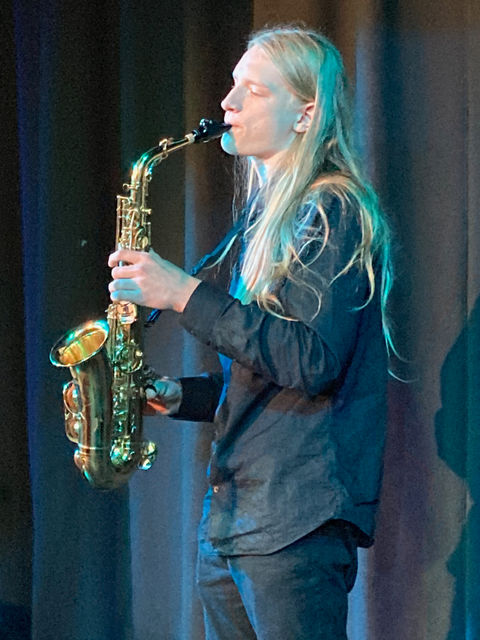Music
INSPIRE - INCLUDE - INITIATE – INNOVATE
Head of Department: Mrs C Towers - towersc@wellandparkacademy.com
Music - Key Stage 3
We are a busy, energetic and thriving department. We believe Music is for everyone, of all abilities. Students enjoy acquiring and developing their music skills through performing, composing and listening. The emphasis throughout is practical music making. Lessons are timetabled for one hour per week across KS3. Our extra-curricular provision for the Performing Arts aims to cater for a wealth of interests and abilities. We have calendared performances and workshops during the school year for students, across all the year groups to take part in.
Each topic of work is broadly delivered in half-termly modules with regular assessments at set points in the year. Participation through singing, keyboard skills and playing on their own instrument, if appropriate, is central to students learning. We provide challenge for students of all abilities within the classroom. This includes the use of Apple iMacs to support and enhance our curriculum.
Music - Key Stage 4
Those students who choose to study Music further at KS4 will have the opportunity to do so by taking GCSE Music in Year 10. The Department currently delivers the OCR specification J536.
DESCRIPTION OF COURSE:
OCR Music GCSE (9-1) provides a contemporary, accessible and creative education in Music. Students are able to demonstrate their musical skills through performing, composing and appraising (listening)
This GCSE course has proved to be enjoyable, varied and rewarding for our students. There is a large coursework element – performance and composition (60% of the GCSE)
Through studying five set ‘Areas of Study’ students broaden their musical understanding and appreciation. Diverse styles of music are explored, from past and present, from Western traditions and other cultures. Students are encouraged to be creative with them through their own performances and compositions.
Studying Music at GCSE allows students to develop their interest and musical skills in a wide range of styles. They will make music both as an individual and as part of a small group.
Life skills will be developed including critical and creative thinking, aesthetics sensitivity, emotional awareness, cultural understanding, self-discipline, self-confidence and self-motivation.
Students wishing to take GCSE Music (9-1) must have good instrumental or vocal skills, be motivated, enthusiastic, independent, good team players and committed to the subject.
The assessment of GCSE Music (9-1) consists of three mandatory components:
1. Coursework Performance (30% of GCSE)
-
Solo performance(s) on a chosen instrument
-
Performance as part of an ensemble, on chosen instrument
(These performances need to be a minimum of four minutes long in total – at least one minute of that needs to be as part of an ensemble)
2. Coursework Composition (30% 0f GCSE)
-
A composition based on a brief set by the student
-
A composition based on a brief set by the exam board
(These two compositions combined need to be a minimum of three minutes in length)
3. Listening / Written Paper (40%exam)
-
A Listening exam paper – summer term of Yr 11 (90 mins) Students apply their knowledge of the Areas of Study 2 - 5
FAQ’s
How often do students have music lesson?
Everybody in Years 7 to 9 receive one hour of Music per week in their form groups.
What instruments do you use to teach students?
We use keyboards and singing to underline the basic principles of music from week to week, preferring to integrate and build on practical experience. There are times where we may choose to use guitars, percussion or music technology via our Apple iMacs.
What topics or skills do you teach?
An example of topics and our area of focus for that topic (Listening/Appraising, Composing, Performing) is listed in the Curriculum Map that you can access from the Music Curriculum page.
Can my child have lessons in other instruments?
Absolutely! We currently have a team of 14 teachers that cover a diverse range of instruments including piano, singing, drum kit, flute, saxophone, clarinet, bassoon, violin, viola, guitar, bass guitar, keyboard, trumpet, trombone and tuba. Other teachers may join us before next year.
Is there a cost to the instrumental lessons?
There is and this varies from teacher to teacher. Pupil premium students are entitled to a 50% discount. If your child is at one of our usual feeder schools then they will receive more information in the Spring Term of Year 6.
How will my child be challenged if they already play an instrument?
All of our work is differentiated and should engage your child at whatever level they may be at.
I know my child will want to study music at GCSE. Is there a set standard they need to be at?
No, but we do recommend that they are enthusiastic, hard-working and have had some form of instrumental or singing lesson for 2 years.
What else can my child expect to experience?
We offer a range of enjoyable extra-curricular activities which aim to cater for musicians of all abilities. A selection of these are available on the website.
For a closer look at the specification please click the link below.
http://www.ocr.org.uk/qualifications/gcse-music-j536-from-2016/






